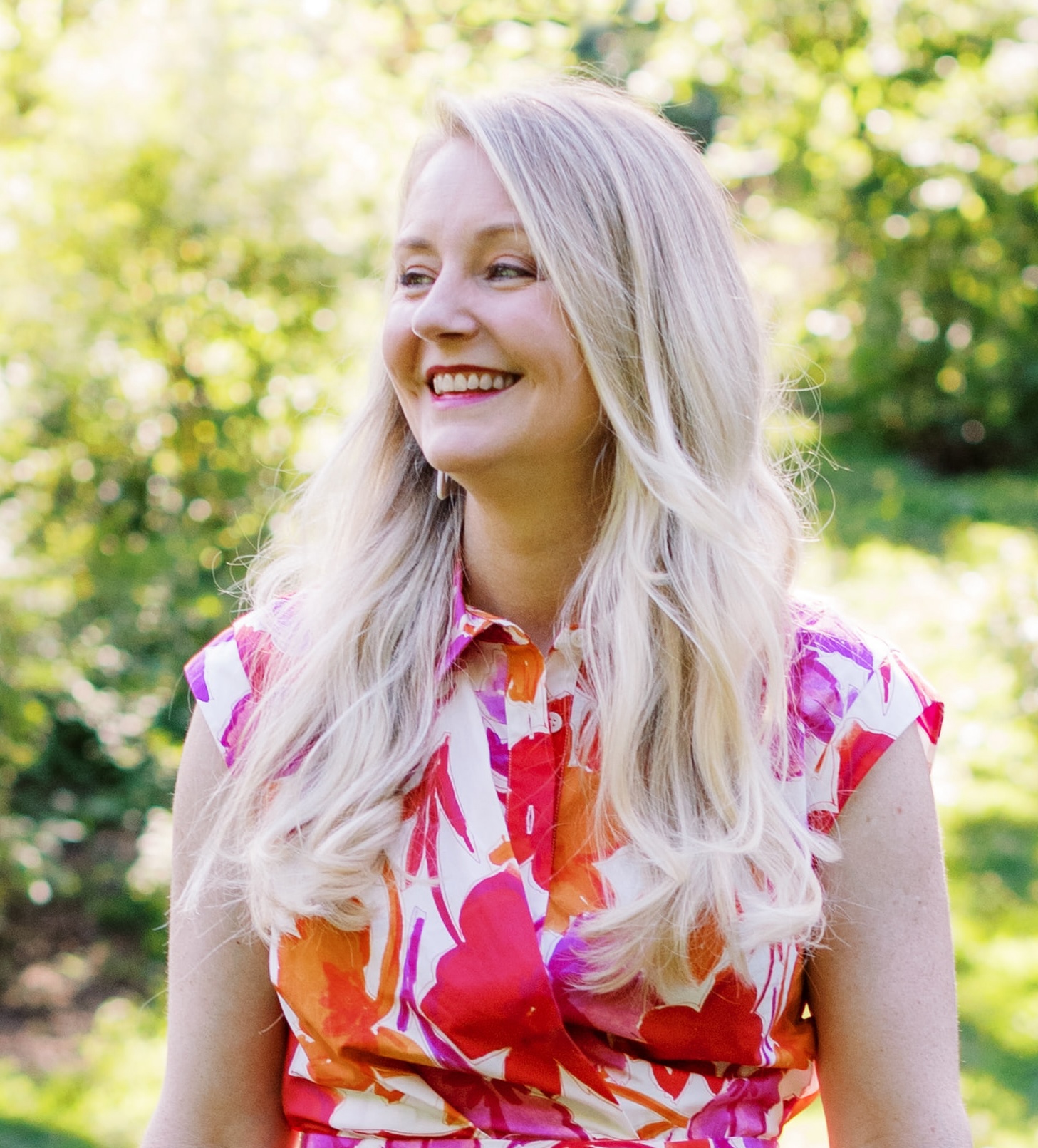
Parenting is an exhilarating, exhausting, and sacred task. Author Jodi Picoult beautifully describes the gift of a child: “Sometimes when you pick up your child, you can feel the map of your own bones beneath your hands or smell the scent of your skin in the nape of his neck. This is the most extraordinary thing about motherhood. Finding a piece of yourself separate and apart that all the same you could not live without.”
While it’s often easy to fall in love with our children, raising them is not so easy. The fear of getting it right is real, and children do not come with a manual. Thankfully, God wants to partner with us as we parent. What follows are six popular parenting myths. Learn why they’re problematic and how faith offers a different vantage point that can help your family soar.
1. "I Must Be Perfect"

1. "I Must Be Perfect"
SLIDE 1 OF 3
True, there is a push in modern blogging to portray parenting imperfections that were formerly kept behind closed doors. Writers portray the messiness of family life, humorous moments, and parenting fails that often come with the territory. At the same time, however, social media continues to cast an unrealistic portrait. Facebook and Instagram encourage comparison as users scroll (messy stories or not), and already overburdened parents feel pressure to be Pinterest-ready.
Popular blogger, teacher, and New York Times bestselling author Rachel Macy Stafford is quick to admit her struggles to her children. Instead of finding strength in the illusion of perfection, she lets her children into her inner life in an age-appropriate fashion. By sharing her struggles and strategies to surmount them, she hopes to encourage understanding and competence in her daughters as they face their own challenges.
One step that we can take as parents is to be willing to apologize to our children. Perfection is not reality—though we do try our best. Our children often see us as perfect, however, especially when they’re little. Their eyes are constantly monitoring and learning from our behavior. Imagine the freedom found when we cast off the air of perfection, personally drink in God’s mercy, and model life-giving grace and growth in our home.
2. "Keep Children Busy—it Keeps Them Out of Trouble"
It’s easy to live in a culture of rush. The tendency to schedule more and more for our children often comes from a good place. We want them to enjoy and advance in their talents. Further, we fear boredom might lead to trouble. The problem is when good things inadvertently choke out time for better things. Better things are family dinner time, parent-child conversation, and regular downtime. Each serves as a powerful grounding force for children, and unfortunately, all were on a statistical decline pre-COVID.
Our need to honor and protect a rhythm of activity and rest in our families stems from God’s example in scripture. In the first creation story, God models good work and then the importance of stepping back to enjoy it. Further, the concept of Sabbath rest is later a biblical command found in the Ten Commandments.
Just as God models Sabbath, we need to model it in our families. God calls us to live in a rhythm of not being stretched too thin so that our children learn how to recharge and we all have a reserve for life’s challenges. As a mother of three children who range in age from two to twelve, I can attest that balance isn’t always easy, and I don’t always get it right. Regardless, God’s command couldn’t be more applicable today.
Photo credit: © Unsplash/Alexander Dummer
3. "Education is the Single Greatest Gift You Can Give Your Child"

3. "Education is the Single Greatest Gift You Can Give Your Child"
SLIDE 2 OF 3
The reality is that education is very important. High school graduation is statistically linked to higher income and homeownership rates. Education has the power to help lift people out of poverty and foster independence and success. My father told me that he invested in my education because it was the one thing that no one could ever take away. Education is a personal treasure capable of reaping dividends in our own lives and those whom our lives touch.
The shortcoming of this advice, however, is that it often only refers to school learning. A faith education is important too. If we neglect the thoughtful nurture of a faith relationship in our children, we leave them with little tools to navigate the storms of life. We know these storms often present with little warning and have the power to derail us, no matter what grade we got in school. Sometimes hope in God is our only anchor; children need that life preserver.
This means in addition to SAT prep, children will benefit from our support of their first communion or confirmation. In addition to joint study sessions, they will benefit from hearing us pray and answer questions like why faith matters to us. Further, as much as we hone our ability to propel them, they also need to expand their vision beyond themselves to God and others. Grounding our children in faith not only provides them with greater fortitude but a more comprehensive and fulfilling definition of success.
4. "A Parent Knows Best"
The phenomenon of the Tiger Mom is an example of why this adage is problematic. It describes a parent who knows what’s best for the child regardless of their opinions or feelings. The child is subjected to rigors to achieve measurable accolades, but often at the expense of alienation from the parent and the child's inner turmoil.
Faith has a cure for well-meaning parents looking to foster a less splintering version of success. Our role as Christian parents is to provide our children with every tool to execute our Heavenly Father’s plan for their life. If we look closely, even from infancy, we’ll often see traces of God’s plan for our child. We might notice how we raise each of our children the same, but they are so different; their temperaments, inclinations, and aspirations can vary, for example. Almost like archeologists, we can mine for those divine clues and fan them.
As we partner with God as parents, God can and will direct our children’s steps. For example, Sally Lloyd-Jones chose art history as her course of study in school. Many wondered how she’d ever use it. God didn’t. Years later, Sally is a New York Times bestselling author whose collaboration with the illustrator Jago has produced arguably the best children’s Bible of our time, The Jesus Storybook Bible.
Photo credit: ©Getty Images/Indeed
5. "Discipline Is Old School; it’s More Important to Be Your Child’s Friend"

5. "Discipline Is Old School; it’s More Important to Be Your Child’s Friend"
SLIDE 3 OF 3
Certainly, there are different ways to discipline, and some are better than others. I am referring to fair, consistent, and firm discipline that is done with the child’s best interest at heart. It does not always make parents popular, but it does make them relevant.
Leonard Sax is a practicing physician, psychologist, and New York Times bestselling author whom I have been honored to interview twice. In his book The Collapse of Parenting, he writes about modern parents’ frequent aversion to parenting with authority. This aversion, coupled with the rise of social media, has resulted in a decline in parental influence and a rise in peer influence among youth.
The ramifications of rising peer influence have been detrimental, as Dr. Sax documents through research. Drug usage, dropout rates, anxiety, depression, and even suicide are up among our youth. The grounding voice of parental wisdom is missing, along with necessary parental boundaries for guidance. Just as God frames the world with rules to follow in scripture, children need structure from God and us.
6. "Well-Meaning Parents Give Their Children a Leg-Up"
While wanting what’s best for our children is admirable and good, how we go about it is crucial. The term helicopter parent refers to an overprotective parent who metaphorically “hovers” over a child. While certain short-term undesirable consequences can be avoided, it’s not without a long-term toll. Children can subsequently develop poor self-confidence and self-esteem, which can result in anxiety and depression.
Author Jessica Lahey writes about the danger of stunted development in her New York Times bestselling book, The Gift of Failure. She laments the modern tendency to over-parent from her perspective as an educator. Lahey has observed parents writing their children’s essays, packing their sports bags, or driving to school with forgotten homework to spare their children’s failure. Again, short-term consequences are avoided at a long-term price.
Lahey describes failure as a powerful teaching tool, especially when children are young and the stakes are low. Failure has the power to unlock grit and develop self-confidence, both of which are hallmarks to future success. Further, we have likely seen how God can use failure or a setback as a setup for something better in our lives (Romans 8:28). While there is nothing wrong with offering support, removing a difficulty entirely might rob a child of a lesson God wants to teach them.
Childrearing is a difficult task. I am convinced that we do not have a black-and-white parenting guide for each child because God wants to partner with us. He wants us to wrestle with Scripture and how it could be applied to totally different children by the same parents. God wants us to reach out when the inevitable curveball comes, and we need not only strength for ourselves but for our children too. And God wants us to know that he can successfully guide us through parenting fads, like those above, with his time-trusted wisdom as our Heavenly Parent.
Photo credit: ©GettyImages/Lordn

Originally published July 08, 2024.







